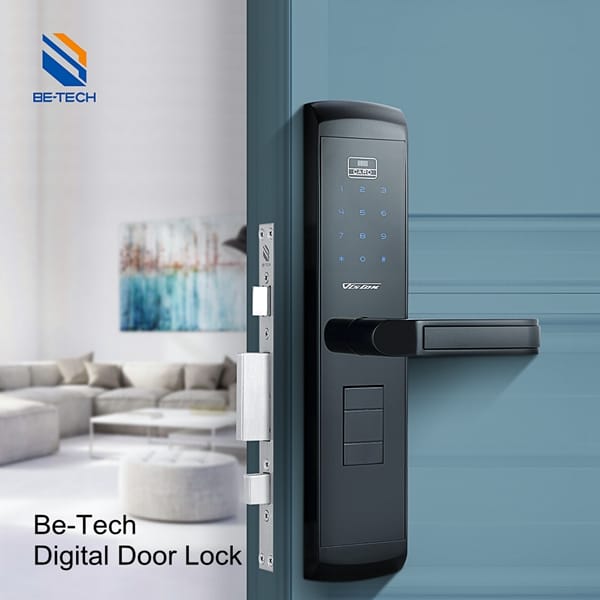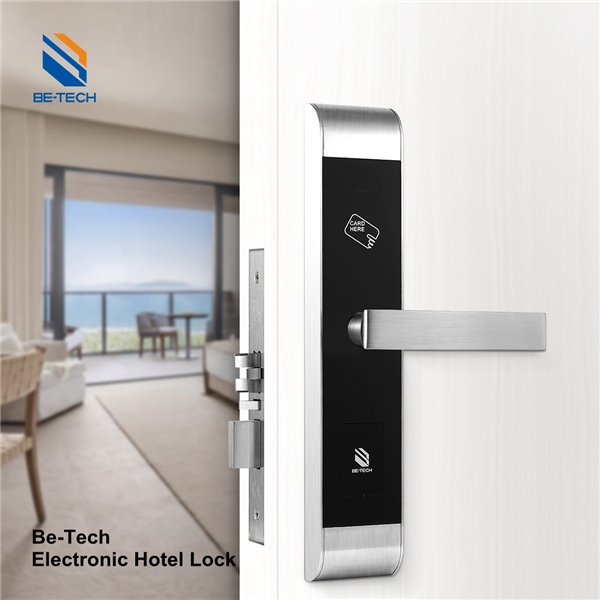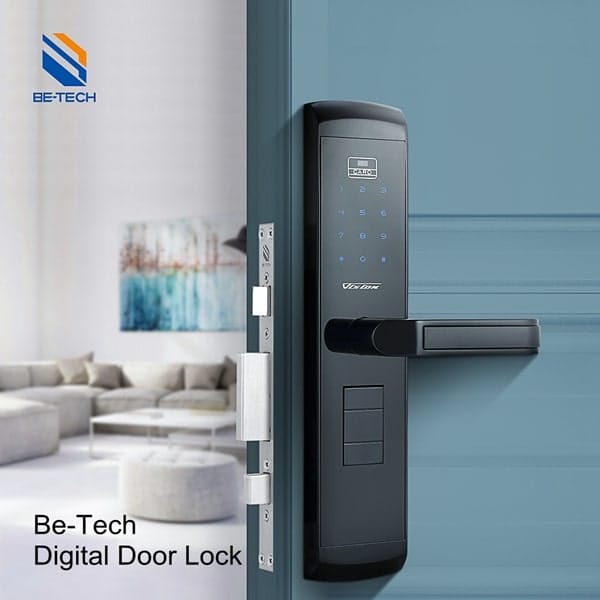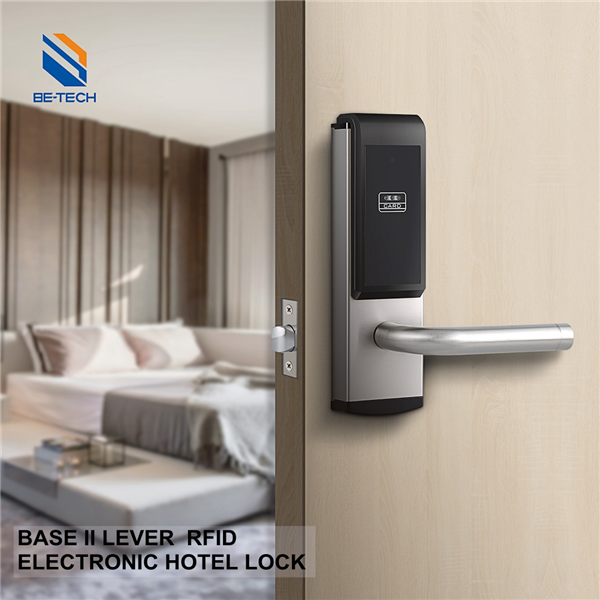Selecting the right commercial door locks is a critical decision for any business owner or property manager. The security of your premises, assets, and personnel often hinges on the effectiveness of your door locks. With a wide array of options available in the market, ranging from traditional mechanical locks to advanced electronic access control systems, making an informed choice can be challenging. This comprehensive guide will walk you through the essential factors to consider when selecting commercial door locks, ensuring you make a decision that balances security, functionality, and cost-effectiveness.
Understanding Commercial Door Lock Grades
Before delving into the selection process, it’s crucial to understand the grading system for commercial door locks. The American National Standards Institute (ANSI) and the Builders Hardware Manufacturers Association (BHMA) have established a grading system that categorizes locks based on their security level and durability.
- Grade 1: The highest level of security, suitable for high-security commercial applications.
- Grade 2: Intermediate security level, appropriate for light commercial use or high-traffic residential areas.
- Grade 3: Basic security level, typically used in residential settings.
For most commercial applications, Grade 1 or Grade 2 locks are recommended. Grade 1 locks undergo rigorous testing, including withstanding 1 million open/close cycles and resisting 360 pounds of pressure, making them ideal for high-security environments.
For more information on the importance of lock grades, check out our article on High-Security Commercial Door Locks.
Assessing Your Security Needs
Building Type and Usage
The type of building and its intended use play a significant role in determining the appropriate lock system. Consider the following:
- Retail stores may require locks that can withstand frequent use and potential break-in attempts.
- Office buildings might benefit from access control systems that can manage multiple users with different access levels.
- Industrial facilities may need heavy-duty locks that can withstand harsh environments.
Explore our insights on Benefits of Keyless Entry Systems for Your Commercial Property to understand how different environments can influence your choice of locks.
Traffic Flow and User Access
Analyze the traffic flow and user access requirements of your facility:
- How many people will need access to different areas?
- Do you need to restrict access to certain zones during specific times?
- Will temporary access need to be granted to visitors or contractors?
Understanding these factors will help you determine whether a simple mechanical lock system suffices or if you need a more sophisticated electronic access control solution.
Key Features to Look for in Commercial Door Locks
Durability and Strength
Commercial door locks should be built to withstand heavy use and potential forced entry attempts. Look for locks made from high-quality materials such as hardened steel or brass. The lock’s bolt should extend at least one inch into the door frame for maximum security.
Consider the Be-Tech Wireless Online Electronic Lock for a durable option that combines strength with modern technology.
Weather Resistance
For exterior doors, choose locks with high IP (Ingress Protection) ratings to ensure they can withstand various weather conditions. Look for locks rated IP65 or higher, which offer protection against dust and water ingress.
Access Control Options
Modern commercial locks offer various access control options:
- Key cards or fobs
- PIN codes
- Biometric scanners (fingerprint, retinal scan)
- Smartphone-based access
Consider which option best suits your security needs and user convenience.
For a deeper dive into access control systems, refer to our article on 9 Key Benefits of Implementing Access Control Systems.
Integration Capabilities
In today’s interconnected world, the ability to integrate your door locks with other security systems is crucial. Look for locks that can be integrated with:
- Alarm systems
- Video surveillance
- Time and attendance systems
- Building management systems
This integration can provide a more comprehensive security solution and streamline operations.
Types of Commercial Door Locks
Mechanical Locks
Traditional mechanical locks are still widely used in commercial settings. They include:
- Cylindrical locks: Common in commercial applications, easy to install and maintain.
- Mortise locks: Offer higher security, often used in high-traffic areas.
- Deadbolts: Provide additional security when used in conjunction with other locks.
Electronic Access Control Systems
These systems offer advanced features such as:
- Audit trails of entry and exit
- Remote access management
- Time-based access restrictions
- Integration with other security systems
For an innovative electronic locking solution, consider the Electronic Hotel Lock – Visual III RFID (V5 Series), which is designed for high-security environments.
Biometric Locks
Biometric locks use unique physical characteristics for authentication, offering high security and eliminating the need for keys or cards. Common biometric options include:
- Fingerprint scanners
- Retinal scanners
- Facial recognition systems
Smart Locks
Smart locks combine traditional locking mechanisms with internet connectivity, allowing for remote management and monitoring. They can be controlled via smartphone apps and often integrate with home or business automation systems.
Explore the features of our Be-Tech Smart Deadbolt for a reliable smart locking solution.
Compatibility and Installation Considerations
When selecting commercial door locks, consider:
- Compatibility with existing door hardware
- Ease of installation and potential retrofitting requirements
- Power source requirements (battery-operated vs. hardwired)
- Scalability for future expansion
Ensure that the chosen locks comply with fire safety regulations and ADA (Americans with Disabilities Act) requirements where applicable.
Budget and Cost Analysis
While it’s tempting to opt for the cheapest option, remember that security is an investment. Consider the following when evaluating costs:
- Initial purchase price
- Installation costs
- Ongoing maintenance expenses
- Potential costs of security breaches
A more expensive, high-quality lock system may prove more cost-effective in the long run by providing better security and requiring less maintenance.
For budget-friendly solutions, check out our article on Affordable Hotel Door Locks: Secure & Budget-Friendly Solutions 2024.
Brand Reputation and Support
Choose locks from reputable manufacturers known for their quality and reliability. Research customer reviews and seek recommendations from security professionals. Consider the following:
- Warranty terms
- Availability of replacement parts
- Technical support and customer service
- Training provided for system management
Compliance with Building Codes and Regulations
Ensure that your chosen lock system complies with local building codes and industry regulations. This may include:
- Fire safety standards
- Emergency egress requirements
- ADA compliance
- Insurance requirements
Non-compliance can result in fines, increased liability, and compromised safety.
Future-Proofing Your Lock System
Technology in the security industry is rapidly evolving. When selecting commercial door locks, consider:
- Upgradability of the system
- Compatibility with emerging technologies
- Scalability to accommodate business growth
- Flexibility to adapt to changing security needs
Choosing a system with these factors in mind can help ensure your investment remains valuable for years to come.
Conclusion
Selecting the right commercial door locks is a crucial decision that impacts the security and functionality of your business premises. By considering factors such as security grade, building usage, key features, and integration capabilities, you can make an informed choice that provides optimal protection for your assets and personnel.
Remember to assess your specific needs, evaluate different types of locks, and consider long-term costs and benefits. Consult with security professionals and reputable lock manufacturers to ensure you’re making the best choice for your commercial property.
Investing time and resources in selecting the appropriate commercial door locks will pay dividends in enhanced security, improved operational efficiency, and peace of mind. As technology continues to advance, stay informed about new developments in commercial lock systems to ensure your security measures remain effective and up-to-date.









